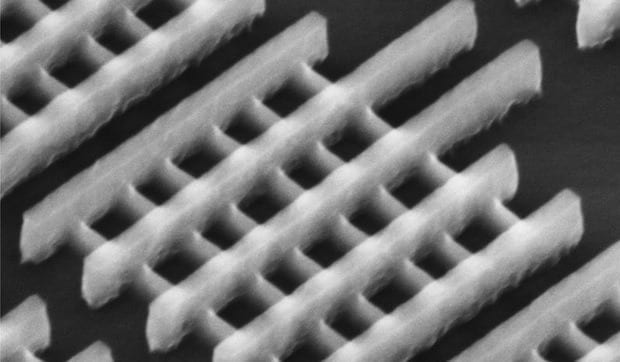Intel has revealed a radical transistor design called 3-D Tri-Gate that it will use in its upcoming Ivy Bridge CPUs.
Great news for tech geeks, but what does that string of code words mean for your gadgets?
Essentially, it’s a tech breakthrough you’ll learn to love, as it’ll make your smartphones smarter and more battery-friendly to boot. That Eggo-looking thing pictured is its rather humble close-up, but don’t let its mundane appearance fool you into thinking this isn’t a big deal.
There’s a tug-of war in every generation of computer chips that arrive: We all want more powerful devices that do more, faster, but we also want chips that eat less power so our desktop PCs don’t fire out lap-melting levels of heat. The battle is even more important when it comes to mobile devices that rely on battery power, since as well as heat disposal there’s an even more important issue–the limited power that can be supplied by a battery. Technological developments in chip design have followed one simple path to achieve ever-better chips–smaller and smaller transistors, the basic building block of every CPU, something that’s kept the famous Moore’s Law ticking over for decades.
The transistor chip designers have used until now are made of minuscule but flat layers of semiconductors. And while shrinking the size of transistors is generally a good thing, some physical limits are being reached. Back in 2002, Intel scientists worked out how to make transistors out of thin vertical fins of semiconductor that poke up out of the normally pretty flat surface of a chip. Instead of three electrical contacts, the transistors have an extra one, on top of the thin fin, that improves the flow of current through the device when it’s “on” and suppresses it as much as possible when “off.” The thin profile of the transistors means they can also be packed more closely together, meaning electrical signals take less time to flit across the chip and thus act more swiftly.








